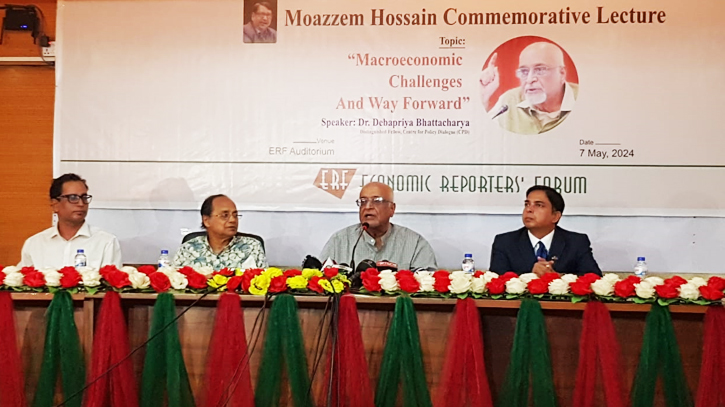
Photo: Messenger
Dissatisfaction with the central bank is increasing day by day due to various controversial steps. There is already a lot of criticism about merging weak banks with relatively strong ones. Also, economists blame the Bangladesh Bank for not being able to protect the banking sector as a regulatory body.
Amid such criticism, banning journalists from entering the central bank has created more doubts in all quarters. Various journalistic organisations have already protested about the matter.
Economists and politicians have also become vocal in criticism. They said that the Bangladesh Bank has made such a decision to suppress major irregularities.
Dr Debapriya Bhattacharya, a distinguished fellow at the Centre for Policy Dialogue (CPD), strongly criticised the decision of the Bangladesh Bank. He said, “Earlier, there was anarchy of data in the country. Now there is a data breach. The recent ban on the entry of journalists to the central bank is proof of that.”
He also said that the Bangladesh Bank is the place of people’s expectations and the big pillar of information. “Before the Bangladesh Bureau of Statistics data, we depended on the central bank data on financial indicators, including export and import. Now why has the information been compromised? It will damage the reputation of the Bangladesh Bank.”
Debapriya mentioned that the Bangladesh Bank was not allowing journalists to enter there to hide information. “We had the pride that we never defaulted on foreign loans. But recently, we are not able to pay after importing fuel oil. Foreigners are not able to take profit. Airline traders are not getting paid. It means cracks in the place of pride. This data is provided by the Bangladesh Bank. Entry is prohibited there.”
He also said some are getting information and some are not. “Today, businessmen are getting information while journalists are not. If information is given to traders, the market is affected and the price increases. The Bangladesh Bank is a state institution. Journalists are not allowed to enter there. What message does this convey? If what is happening there now becomes public, it will be a major sabotage.”
Many complain that the steps taken by Abdur Rouf Talukder to control inflation in the country since he joined as the governor of the Bangladesh Bank are not playing an effective role. On the contrary, the country’s inflation is increasing. In addition, he has failed to prevent the irregularities in the dollar market since September 2022.
Besides, debt increased to a record amount during Abdur Rouf Talukder’s tenure than any other governor. Reserves also fell to a record amount. He is imposing restrictions on the entry of journalists as these issues are being reported. They believe that the governor made such a decision to cover his weakness.
Dr Salehuddin Ahmed, former governor of the Bangladesh Bank, said, “The ban on journalists entering the Bangladesh Bank has not been fixed. It cannot be desired that there is a place of obstruction in the flow of information. Everyone must fulfil their responsibility. Just as the bank has the responsibility to convey the right information to the people, the media also has the responsibility to present it correctly.”
Meanwhile, Transparency International Bangladesh (TIB) has expressed deep concern over the imposition of restrictions on journalists’ access to the Bangladesh Bank, which is the financial sector’s regulatory body and the last resort for people’s money. The organisation has called for immediate withdrawal of such action, citing unprecedented obstacles in the way of the media’s professional responsibility in disclosing banking and financial sector information in public interest.
On the other hand, Ruhul Kabir Rizvi, senior joint general secretary of BNP, has commented that journalists have been banned from entering the Bangladesh Bank to hide the looting and corruption of the ruling Awami League. He commented that the central bank has made such a decision under the pressure of interest-seeking individuals, groups, circles, and bank directors involved in irregularities and corruption.
Messenger/Disha








